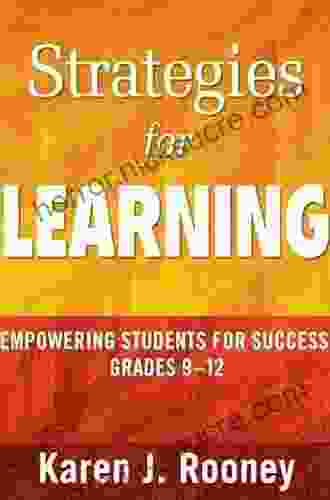Helping Your Children Thrive During and After the Split: A Comprehensive Guide for Parents

4.3 out of 5
| Language | : | English |
| File size | : | 748 KB |
| Text-to-Speech | : | Enabled |
| Screen Reader | : | Supported |
| Enhanced typesetting | : | Enabled |
| Word Wise | : | Enabled |
| Print length | : | 209 pages |
A family split can be a profoundly challenging experience for all involved, particularly for children. The dissolution of a marriage or partnership can disrupt their sense of stability, security, and belonging. As parents, it's our responsibility to prioritize our children's well-being during and after this transition. This comprehensive guide offers practical strategies and insights to help you support your kids, foster their resilience, and promote their long-term happiness.
Effective Communication
Open and honest communication is crucial for children to process their emotions and understand what's happening. Talk to your kids in a developmentally appropriate way, using age-specific language and avoiding blaming or negative language.
Tips for Effective Communication:
- Choose the right time and place: Opt for a private and comfortable setting where you won't be interrupted.
- Start by expressing your love and support: Let your children know that you still love them unconditionally and will always be there for them.
- Use clear and simple language: Explain the situation in a way that they can understand, avoiding jargon or abstract concepts.
- Be patient and answer their questions: Children may have numerous questions and concerns. Answer them honestly and empathetically.
- Listen to your children's perspectives: Allow them to express their thoughts and feelings without interrupting or dismissing them.
- Reassure them that they're not to blame: Emphasize that the split is not their fault and that they are loved and valued by both parents.
- Keep communication ongoing: Have regular check-ins with your children to provide support and address any emerging concerns.
Understanding and Addressing Emotions
Children may experience a wide range of emotions after a family split, including sadness, anger, confusion, and anxiety. It's essential to provide a safe and supportive environment where they can express their feelings openly.
Tips for Understanding and Addressing Emotions:
- Validate your children's emotions: Let them know that their feelings are understandable and acceptable.
- Encourage them to talk about their feelings: Create opportunities for your children to express their thoughts and emotions freely, such as having designated "talk time" or using drawing or writing as outlets.
- Help them identify and name their emotions: Provide your children with age-appropriate vocabulary to describe their feelings, such as "sad," "angry," or "confused."
- Offer comfort and reassurance: Hold your children close, provide physical affection, and let them know that they're not alone.
- Encourage healthy coping mechanisms: Help your children find positive ways to manage their emotions, such as exercise, art, or spending time in nature.
- Seek professional help if needed: If your children are struggling to cope with their emotions or exhibiting signs of distress, consider seeking support from a therapist or counselor.
Effective Co-Parenting
Co-parenting can be challenging after a split, but it's essential for providing a consistent and stable environment for your children. Work together with your ex-partner to develop clear boundaries, communication channels, and parenting plans.
Tips for Effective Co-Parenting:
- Put your children's needs first: Prioritize your children's well-being above any personal differences or conflicts.
- Establish clear communication channels: Designate specific times and methods for communicating about parenting matters, such as text messages or email.
- Develop a parenting plan: Document your agreed-upon parenting arrangements, including custody schedules, holiday plans, and decision-making processes.
- Be flexible and cooperative: Adjust your parenting plans as needed to accommodate changing schedules or unexpected events.
- Avoid speaking negatively about your ex-partner: Refrain from disparaging or criticizing your ex in front of your children.
- Seek support if needed: If you're struggling to co-parent effectively, consider seeking support from a family therapist or mediator.
Self-Care for Parents
Taking care of your own emotional and physical well-being is paramount during and after a family split. Your children will benefit from a healthy and balanced parent.
Tips for Self-Care for Parents:
- Prioritize your mental health: Seek therapy or counseling if needed to address your own emotional challenges.
- Establish a support network: Connect with friends, family members, or support groups for encouragement and assistance.
- Engage in physical activity: Exercise is a great way to reduce stress and improve your mood.
- Get enough sleep: Sleep deprivation can exacerbate stress and emotional reactivity.
- Practice mindfulness: Engage in activities such as meditation or yoga to reduce stress and improve emotional regulation.
- Set boundaries: Limit your exposure to negative or triggering situations that may impact your well-being.
- Don't be afraid to ask for help: Reach out to others when you need support, whether it's for practical assistance or emotional support.
Fostering Resilience in Children
Children can build resilience, the ability to bounce back from setbacks, after a family split. Encourage their strengths, provide a sense of stability, and teach them healthy coping mechanisms.
Tips for Fostering Resilience in Children:
- Focus on their strengths: Help your children identify and develop their unique talents and abilities.
- Provide a sense of stability: Maintain routines, establish clear expectations, and provide a consistent and predictable environment.
- Teach healthy coping mechanisms: Equip your children with strategies for managing stress, such as relaxation techniques, problem-solving skills, and positive self-talk.
- Encourage positive relationships: Surround your children with supportive family members, friends, and mentors.
- Build a strong parent-child bond: Children who feel secure in their relationship with their parents are more likely to develop resilience.
- Teach the importance of forgiveness: While it's not necessary to condone harmful behavior, encourage your children to forgive their parents or other involved adults.
Supporting children through a family split is a complex and challenging journey. By prioritizing effective communication, understanding and addressing their emotions, establishing effective co-parenting strategies, and prioritizing self-care, parents can create a supportive environment that fosters their children's resilience and well-being. Remember that every family is unique, and there is no one-size-fits-all approach. The most important thing is to love and support your children unconditionally and to provide them with the resources they need to thrive.
4.3 out of 5
| Language | : | English |
| File size | : | 748 KB |
| Text-to-Speech | : | Enabled |
| Screen Reader | : | Supported |
| Enhanced typesetting | : | Enabled |
| Word Wise | : | Enabled |
| Print length | : | 209 pages |
Do you want to contribute by writing guest posts on this blog?
Please contact us and send us a resume of previous articles that you have written.
 Fiction
Fiction Non Fiction
Non Fiction Romance
Romance Mystery
Mystery Thriller
Thriller SciFi
SciFi Fantasy
Fantasy Horror
Horror Biography
Biography Selfhelp
Selfhelp Business
Business History
History Classics
Classics Poetry
Poetry Childrens
Childrens Young Adult
Young Adult Educational
Educational Cooking
Cooking Travel
Travel Lifestyle
Lifestyle Spirituality
Spirituality Health
Health Fitness
Fitness Technology
Technology Science
Science Arts
Arts Crafts
Crafts DIY
DIY Gardening
Gardening Petcare
Petcare Fr Mike Driscoll
Fr Mike Driscoll Barry King
Barry King Peter L Berger
Peter L Berger Christian Smith
Christian Smith Paul Dolan
Paul Dolan Kim Vopni
Kim Vopni Elaine Stillerman
Elaine Stillerman Holly Black
Holly Black Chuck Lukacs
Chuck Lukacs John Fry
John Fry Carol Devine
Carol Devine Seth A Roberts
Seth A Roberts Lebawit Lily Girma
Lebawit Lily Girma Michael P Nordvall
Michael P Nordvall Blandine Calais Germain
Blandine Calais Germain Heroes Of The Art
Heroes Of The Art Henri De Lestapis
Henri De Lestapis Chris Conley
Chris Conley Rich Roll
Rich Roll Stephanie Baier
Stephanie Baier Shelby Evans
Shelby Evans Gaby Melian
Gaby Melian L H Stacey
L H Stacey Lucy Cooke
Lucy Cooke Troy Treasure
Troy Treasure Kiera Cass
Kiera Cass Christopher Hill
Christopher Hill Laurence S Moy
Laurence S Moy Christy Mihaly
Christy Mihaly Buck Collins
Buck Collins Ben Gillman
Ben Gillman Ben Worthington
Ben Worthington Molly Hurford
Molly Hurford Ben Hoppe
Ben Hoppe Robert Page
Robert Page Jenson Button
Jenson Button Tracy Tresidder
Tracy Tresidder Knowledge Flow
Knowledge Flow Gerard Taylor
Gerard Taylor Colin Fletcher
Colin Fletcher Len Mcdougall
Len Mcdougall Gerad Kite
Gerad Kite John Branch
John Branch Nicholas Griffin
Nicholas Griffin Dudley Wright
Dudley Wright Nsca National Strength Conditioning Association
Nsca National Strength Conditioning Association Julie Urbanski
Julie Urbanski Olivia Longray
Olivia Longray Philip A Moore
Philip A Moore Karen J Rooney
Karen J Rooney Prem Carnot
Prem Carnot Glenn Bartley
Glenn Bartley Jeff Ramey
Jeff Ramey Sarah Elizabeth Richards
Sarah Elizabeth Richards Kindle Edition
Kindle Edition Santari Green
Santari Green Portia Iversen
Portia Iversen Bernard Lewis
Bernard Lewis Sarah Maclean
Sarah Maclean Carla Killough Mcclafferty
Carla Killough Mcclafferty Benjamin Smith
Benjamin Smith Oliver Sacks
Oliver Sacks Fran Zimniuch
Fran Zimniuch Jay Kirk
Jay Kirk William Cane
William Cane T L Branson
T L Branson Ben O Williams
Ben O Williams Stefanie Molin
Stefanie Molin Connie Zweig
Connie Zweig Si Sheppard
Si Sheppard Scott Wetzler
Scott Wetzler Ashley Lecker
Ashley Lecker Joshua Rodriguez
Joshua Rodriguez Bernadette Mcdonald
Bernadette Mcdonald Eric Provan
Eric Provan Rich Johnson
Rich Johnson David Barrie
David Barrie John R Bruning
John R Bruning Hillary Sadler
Hillary Sadler Denise Gaskins
Denise Gaskins Catherine Faherty
Catherine Faherty Troy Horne
Troy Horne S Connolly
S Connolly Gerald G Briggs
Gerald G Briggs Bob Raynor
Bob Raynor Department Of The Army
Department Of The Army Meghan Mccarthy
Meghan Mccarthy Josh Gates
Josh Gates Wesley C Salmon
Wesley C Salmon Dan Orr
Dan Orr Ilya Grigorik
Ilya Grigorik Lelah Sullivan
Lelah Sullivan Howard Burton
Howard Burton David Jeremiah
David Jeremiah Eliza Larson
Eliza Larson Rebecca Collins
Rebecca Collins Charlotte Mason
Charlotte Mason Daniel Muijs
Daniel Muijs Brent Majcher
Brent Majcher James Allen
James Allen Edward Beauclerk Maurice
Edward Beauclerk Maurice Lawrence Wright
Lawrence Wright Sanjay Gupta
Sanjay Gupta Monica Swanson
Monica Swanson Scott Wallace
Scott Wallace Dan Inosanto
Dan Inosanto Cokie Roberts
Cokie Roberts Christina Hitchcock
Christina Hitchcock Bertrand Russell
Bertrand Russell Mary V Solanto
Mary V Solanto Patti Jean
Patti Jean Tony Horwitz
Tony Horwitz Beth Reekles
Beth Reekles Editors Of Martha Stewart Living
Editors Of Martha Stewart Living Thomas Norman Dewolf
Thomas Norman Dewolf Naomi Steiner
Naomi Steiner Molly Mills
Molly Mills Kent Allen
Kent Allen Tim Tebow
Tim Tebow Bella Bathurst
Bella Bathurst Dennis Fisher
Dennis Fisher Sandy Glenn
Sandy Glenn Sharon Bergen
Sharon Bergen Benjamin Southerland
Benjamin Southerland Deborah Blum
Deborah Blum Melina Palmer
Melina Palmer Margaret E Murie
Margaret E Murie Khoi Tu
Khoi Tu Stuart James Amei
Stuart James Amei Jaimal Yogis
Jaimal Yogis Glenn Randall
Glenn Randall Kayla Small
Kayla Small Lauren Wells
Lauren Wells Clifford Geertz
Clifford Geertz Benjamin Johnston
Benjamin Johnston Bethany Warren
Bethany Warren Mario Cardano
Mario Cardano Alan Levinovitz
Alan Levinovitz Jessica Misener
Jessica Misener T L Christianson
T L Christianson Kate Williams
Kate Williams Scott Wilson
Scott Wilson Nate Summers
Nate Summers Brandon Sanderson
Brandon Sanderson Kalliope Barlis
Kalliope Barlis Bernadette Noll
Bernadette Noll Larry Gabe
Larry Gabe Nick Price
Nick Price Esther Hicks
Esther Hicks Makiia Lucier
Makiia Lucier Jonathan Knight
Jonathan Knight William C Oakes
William C Oakes Gooseberry Patch
Gooseberry Patch Scott Imhoff Phd
Scott Imhoff Phd Jane Bottomley
Jane Bottomley Joe Baird
Joe Baird Slavka Bodic
Slavka Bodic Shelley C Safian
Shelley C Safian Octavia Steen
Octavia Steen Hansa Bhargava
Hansa Bhargava Tracy Lash Decrosta
Tracy Lash Decrosta Cathy Jackson
Cathy Jackson Joy Hendry
Joy Hendry Blythe Lucero
Blythe Lucero Matthew Stein
Matthew Stein Mindy Cockeram
Mindy Cockeram Jack Buck
Jack Buck Ahlia Rose
Ahlia Rose Stacey Barrett
Stacey Barrett Emma Walker
Emma Walker Farley Mowat
Farley Mowat Adam Stevens
Adam Stevens Emily Alison
Emily Alison Joe Baker
Joe Baker John H Holland
John H Holland Mitch Terrusa
Mitch Terrusa Rose Kearney Nunnery
Rose Kearney Nunnery Laura Hoggins
Laura Hoggins Jamie C Martin
Jamie C Martin Nancy Redd
Nancy Redd Debbie Marks
Debbie Marks Patricia Hachten Wee
Patricia Hachten Wee Elizabeth Verdick
Elizabeth Verdick Print Replica Kindle Edition
Print Replica Kindle Edition Justin Roethlingshoefer
Justin Roethlingshoefer Frank Galli
Frank Galli Charlotte Mary Yonge
Charlotte Mary Yonge Declan Lyons
Declan Lyons Sarah Miller
Sarah Miller Mike Brown
Mike Brown John Grasso
John Grasso Eileen Kennedy Moore
Eileen Kennedy Moore Leia Stone
Leia Stone Brian Sparks
Brian Sparks Stephen Jenkinson
Stephen Jenkinson Lucy Ruddle
Lucy Ruddle Gary Oberg
Gary Oberg Mark Lutz
Mark Lutz Leonard Mlodinow
Leonard Mlodinow Kim John Payne
Kim John Payne Deborah D Gray
Deborah D Gray Jacqueline Marcell
Jacqueline Marcell Albert S Tarendash
Albert S Tarendash Catherine White
Catherine White Dean R Giles
Dean R Giles Richard Dawkins
Richard Dawkins John Huggan
John Huggan Melissa De La Cruz
Melissa De La Cruz Michael S Kelly
Michael S Kelly C C Hunter
C C Hunter William J Callaway
William J Callaway Virginia Smith Harvey
Virginia Smith Harvey Mark Csikszentmihalyi
Mark Csikszentmihalyi Robert W Smith
Robert W Smith Susan Wildes
Susan Wildes Joline Godfrey
Joline Godfrey Helen Leigh
Helen Leigh John E Eck
John E Eck Kevin Easley
Kevin Easley Dorian Gerhold
Dorian Gerhold Matt Jacobson
Matt Jacobson Chris Batha
Chris Batha Jonathan Wolf
Jonathan Wolf Bernardo Kastrup
Bernardo Kastrup Zoe S
Zoe S Kristin Cashore
Kristin Cashore Zecharia Sitchin
Zecharia Sitchin Melissa Ford
Melissa Ford L T C Rolt
L T C Rolt Rohan Agarwal
Rohan Agarwal Nicola Morgan
Nicola Morgan Percy Keese Fitzhugh
Percy Keese Fitzhugh George Daniel
George Daniel Ricki Linksman
Ricki Linksman David Rynecki
David Rynecki Martijn Konings
Martijn Konings Stan Byrdy
Stan Byrdy Gwen Bettwy
Gwen Bettwy Joe Clement
Joe Clement Lsatmax Lsat Prep
Lsatmax Lsat Prep Timothy Gowers
Timothy Gowers Kevin Johnson
Kevin Johnson Mikki Morrissette
Mikki Morrissette David Diaz
David Diaz John Biggar
John Biggar Edward O Wilson
Edward O Wilson Laura Bashar
Laura Bashar Deanna Raybourn
Deanna Raybourn Sheila Lukins
Sheila Lukins Mike Veny
Mike Veny Stephan A Hoeller
Stephan A Hoeller Sherry Turkle
Sherry Turkle Tamarack Song
Tamarack Song Hannah Witton
Hannah Witton Eva Robild
Eva Robild Educational Testing Service
Educational Testing Service Eliza Hof
Eliza Hof Nadine Slavinski
Nadine Slavinski Neil Iton
Neil Iton Haya Leah Molnar
Haya Leah Molnar Bb Easton
Bb Easton Prof Dr Wa Liebenberg
Prof Dr Wa Liebenberg Bill W
Bill W Rachel Ann Cullen
Rachel Ann Cullen Ken M Harrison
Ken M Harrison Jo Carol Claborn
Jo Carol Claborn Liz Robbins
Liz Robbins Maggie Oakes
Maggie Oakes Peter Gieler
Peter Gieler Eva Hoffman
Eva Hoffman Drew Estell
Drew Estell Linda Spatig
Linda Spatig Vinny Berry
Vinny Berry Steven Rinella
Steven Rinella Emma Mckinney
Emma Mckinney Ciara Attwell
Ciara Attwell Rick Rinehart
Rick Rinehart James Henry Breasted
James Henry Breasted Chanda Hahn
Chanda Hahn Brian M Conners
Brian M Conners Scott A Hatch
Scott A Hatch Christy Dorrity
Christy Dorrity Peter Isler
Peter Isler Holly Parker
Holly Parker Natasha D Lane
Natasha D Lane Lawrence S Leff
Lawrence S Leff Shelia Craig Whiteman Pt Dpt Clt
Shelia Craig Whiteman Pt Dpt Clt Ellen Galinsky
Ellen Galinsky Valentin Nugmanov
Valentin Nugmanov David Robson
David Robson Malin Gutestam
Malin Gutestam Terrence Talley
Terrence Talley Joe Farinaccio
Joe Farinaccio Lene Fogelberg
Lene Fogelberg Darcy Kieran
Darcy Kieran Janisse Ray
Janisse Ray Les Carter
Les Carter Rough Guides
Rough Guides Stephen K Hayes
Stephen K Hayes Meghan Casey
Meghan Casey Steve Schwartz
Steve Schwartz Sandra Brown
Sandra Brown Joseph Ciarrochi
Joseph Ciarrochi Behan Gifford
Behan Gifford Christy Teglo
Christy Teglo Lawrence J Cohen Phd
Lawrence J Cohen Phd John C Lundell
John C Lundell Bruce Kirkby
Bruce Kirkby Marian L Tupy
Marian L Tupy Julie L Hall
Julie L Hall Bill Jamison
Bill Jamison Lizzy Bolan
Lizzy Bolan Brigid Kemmerer
Brigid Kemmerer Theodore Gray
Theodore Gray Vivienne Edgecombe
Vivienne Edgecombe T Edward Nickens
T Edward Nickens Stanley Cohen
Stanley Cohen Clifford E Trafzer
Clifford E Trafzer John Henderson
John Henderson Christian Beamish
Christian Beamish Kelli L Ferguson
Kelli L Ferguson Casey Schreiner
Casey Schreiner Deborah Taylor Hough
Deborah Taylor Hough Oleg Senkov
Oleg Senkov Tiffany Vincent
Tiffany Vincent Vasile Berinde
Vasile Berinde Kyle Simpson
Kyle Simpson Lisa Rene Reynolds Phd
Lisa Rene Reynolds Phd Ellen Meloy
Ellen Meloy David Lawson Phd
David Lawson Phd Kurt Jacobs
Kurt Jacobs The Mountaineers
The Mountaineers Roger Eckstine
Roger Eckstine W David Pierce
W David Pierce Janice K Ledford
Janice K Ledford Heather Davis
Heather Davis Tomoko Fuse
Tomoko Fuse Patricia Leavy
Patricia Leavy Evelyn Underhill
Evelyn Underhill Stephen Smith
Stephen Smith Nathan Doneen
Nathan Doneen Dan R Lynch
Dan R Lynch Bertil Gustafsson
Bertil Gustafsson Brett Cyrgalis
Brett Cyrgalis Thomas W Miller
Thomas W Miller Roger Fredericks
Roger Fredericks Phil Jarratt
Phil Jarratt Michael Pollan
Michael Pollan Lori Ashley Taylor
Lori Ashley Taylor Jon M Sweeney
Jon M Sweeney Lesley Pyne
Lesley Pyne Maria Kriya
Maria Kriya Will Wraxall
Will Wraxall Lizzie Lane
Lizzie Lane Emily Glickman
Emily Glickman Brian Reddington
Brian Reddington Tony Frezza
Tony Frezza Nicola Griffith
Nicola Griffith Maggie Dent
Maggie Dent Lindsey Vonn
Lindsey Vonn Art Friedman
Art Friedman Bell Hooks
Bell Hooks Catherine B Walker
Catherine B Walker Dave Rearwin
Dave Rearwin Patricia B Mcconnell
Patricia B Mcconnell Rosamund Hodge
Rosamund Hodge Craig Childs
Craig Childs Ben Smith
Ben Smith Carol Walters
Carol Walters Tim Ingold
Tim Ingold Chris Mcintyre
Chris Mcintyre Erin Eileen Leigh
Erin Eileen Leigh Mike Settele
Mike Settele Joel Hooks
Joel Hooks Suzanne Bender
Suzanne Bender James Blake
James Blake Paul Bellow
Paul Bellow Theresa Bane
Theresa Bane Kara Richardson Whitely
Kara Richardson Whitely David Quammen
David Quammen John Taylor
John Taylor Richard G Lomax
Richard G Lomax David Sadker
David Sadker Leila Kalmbach
Leila Kalmbach Lou Kasischke
Lou Kasischke Phil Stamper
Phil Stamper Peter Rendell
Peter Rendell Harriet A Washington
Harriet A Washington John Mandel
John Mandel John J Watkins
John J Watkins Lisa Mckay
Lisa Mckay Rui Zhi Dong
Rui Zhi Dong Jo Boaler
Jo Boaler Charles E Farhadian
Charles E Farhadian Budd Coates
Budd Coates Peggy J Martin
Peggy J Martin Stefanie Reinhold
Stefanie Reinhold Nancy Mohrbacher
Nancy Mohrbacher John D Barrow
John D Barrow Shanterra Mcbride
Shanterra Mcbride Huntley Fitzpatrick
Huntley Fitzpatrick Rowan Ellis
Rowan Ellis Phil Davies
Phil Davies Frank Ayres
Frank Ayres Rachael Denhollander
Rachael Denhollander Jeff Grubb
Jeff Grubb Peter Greyson
Peter Greyson Will Oxley
Will Oxley Ethan Sawyer
Ethan Sawyer Sally Moran
Sally Moran Tom Dodd
Tom Dodd Izaak Walton
Izaak Walton Jeremy Griffith
Jeremy Griffith Daniel Boyarin
Daniel Boyarin Christine Desdemaines Hugon
Christine Desdemaines Hugon Rosalie Knecht
Rosalie Knecht Colin Gordon
Colin Gordon Sona Charaipotra
Sona Charaipotra Peter Brown Hoffmeister
Peter Brown Hoffmeister Bob Hazard
Bob Hazard Jill H Rathus
Jill H Rathus David Bain
David Bain Sarah Spencer
Sarah Spencer Rick Wiebe
Rick Wiebe Adam Griffith
Adam Griffith Ben Crawford
Ben Crawford Ellen Schreiber
Ellen Schreiber Martin Lee Abbott
Martin Lee Abbott Stephen Renwick
Stephen Renwick Jean Louis Vidal
Jean Louis Vidal Maggie Kline
Maggie Kline Kenneth R Miller
Kenneth R Miller David Estes
David Estes John Dickie
John Dickie Lawrence Baldassaro
Lawrence Baldassaro Jordan Rivet
Jordan Rivet Jeremy Lent
Jeremy Lent Chris Cage
Chris Cage Bill Hanstock
Bill Hanstock Beth Baker
Beth Baker Rainbow Rowell
Rainbow Rowell Simon Armitage
Simon Armitage Greg Schwipps
Greg Schwipps Phil Martin
Phil Martin Roxanne Reid
Roxanne Reid Graham Burgess
Graham Burgess Kris Wilder
Kris Wilder Don L Gates
Don L Gates
Light bulbAdvertise smarter! Our strategic ad space ensures maximum exposure. Reserve your spot today!
 Dwight BlairFollow ·19.6k
Dwight BlairFollow ·19.6k Earl WilliamsFollow ·8.3k
Earl WilliamsFollow ·8.3k Stanley BellFollow ·11.5k
Stanley BellFollow ·11.5k Bob CooperFollow ·17.3k
Bob CooperFollow ·17.3k Pete BlairFollow ·10.8k
Pete BlairFollow ·10.8k Jarrett BlairFollow ·6.8k
Jarrett BlairFollow ·6.8k Scott ParkerFollow ·3.9k
Scott ParkerFollow ·3.9k Octavio PazFollow ·2.2k
Octavio PazFollow ·2.2k

 Matt Reed
Matt ReedStudying for Your Policing Degree: Critical Study Skills...
Pursuing a policing degree...

 Mike Hayes
Mike HayesHeal Your Heart, Build Trust, & Better Connections To...
In this article,...

 Drew Bell
Drew BellTwo Mothers, Two Sons, and the Quest to Unlock the Hidden...
When their sons were diagnosed with...

 Bobby Howard
Bobby HowardUnveiling the Rivkah Remnant: Lou Kasischke's Unwavering...
In the tapestry of Christian history,...

 Alex Foster
Alex FosterThe Mammoth of the World's Greatest Chess Games: An...
Chess, a game of strategy, intellect,...

 Aldous Huxley
Aldous HuxleyRandom Tables Fantasy RPG: Random Encounter Tables for...
In the vast tapestry of tabletop role-playing...
4.3 out of 5
| Language | : | English |
| File size | : | 748 KB |
| Text-to-Speech | : | Enabled |
| Screen Reader | : | Supported |
| Enhanced typesetting | : | Enabled |
| Word Wise | : | Enabled |
| Print length | : | 209 pages |












